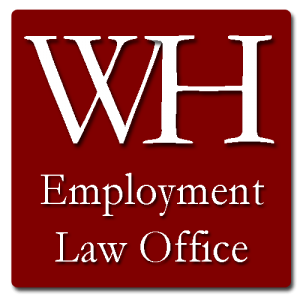Covid-19 Employment Laws
Posted September 2020 by S. Ward Heinrichs
Families First COVID Response Act
Congress passed the Families First COVID Response Act (FFCRA). It grants qualifying employees the right to paid leave. Under certain circumstances, the Act requires the employer to pay employees up to 12 weeks for not working. The law applies only to businesses that have fewer than 500 employees.
If the business offers work from home, then the employee cannot elect to take FFCRA leave. Health Care workers and Emergency Responders are exempt from the benefits of the law. The Secretary of State may exempt businesses with 50 or fewer employees when the imposition of the FFCRA leave would jeopardize the business’s viability. Terminated employees do not get the benefit of the law, but they may have a wrongful termination lawsuit if they were terminated because they asked for FFCRA leave.
The Act provides two weeks (80 hours) of paid Sick Leave and ten weeks of paid FMLA leave. Each provides slightly different benefits. The triggering events overlap, but FMLA leave applies in more limited circumstances.
1. Government COVID quarantine or stay-at-home orders
2. COVID Quarantine advised by Healthcare providers
3. Experiencing COVID Symptoms and Seeking Diagnosis
4. Caring for a person subject to COVID stay-at-home or quarantine orders
5. Caring for kids home from school or without childcare due to COVID
6. Secretary of Health and Human Services order
For the reasons listed in 1-3, employees receive full pay for each day of sick leave, but that amount is capped at $511 per day and at $5,000 for the entire leave period. For reasons 4-6, employees receive two-thirds (2/3) of their regular pay capped at $200 per day and at $2,000 for the entire leave period
Paid FMLA leave only applies to employees who have children at home because COVID restrictions prevent them from going to school or day care. The first two weeks are unpaid. Presumably, FFCRA paid Sick Leave would cover that time. The following ten weeks are paid at the rate of two-thirds (2/3) of the employee’s regular rate of pay, capped at $200 per day and $10,000 for the entire leave period.
California COVID-19 Supplemental Paid Sick Leave
In California, regular Sick Leave and Paid Family Leave may supplement the leaves under FFCRA. Additionally, California also has the COVID-19 Supplemental Paid Sick Leave law. The benefits and triggering events are similar to those of the FFCRA, but it applies to businesses that have 500 or more employees. The California COVID paid leave law does not exempt Health Care workers and Emergency Responders and does not grant paid leave for home child care or caring for an individual subject to COVID restrictions. The law covers Independent Contractors working in the Food Service Industry.
Safe Workplace Requirements
Under Labor Code §6400, an employer must maintain a “safe and healthful” workplace. If an employee refuses to work because the work place is not safe and healthful, violates other Cal OSHA safety or health standards, or violates any Cal OSHA safety order, then the employer may not layoff or discharge that employee. (Labor Code §6311.) If the discharged employee can prove that any of the above violations created a “real and apparent” hazard, the employee will be entitled to claim all wages for the time the employee is without work because of the layoff or discharge.
Finally, if an employee complains about unsafe or unhealthy work conditions, then the employer may not terminate the complaining employee or discriminate against that employee because the employee made such a bona fide complaint. (Labor Code §6310.) If the employee can prove discrimination under Labor Code §6310, then the employee may claim reinstatement and reimbursement of lost wages and benefits.
Wage Issues
The downturn in business may require employers to reduce wages. If the employee is a salaried exempt employee, then the employer must pay at least the minimum salary amount required in California to retain the employee’s exempt status. In 2020, those amounts are $54,080 for businesses that employee at least 26 employees and $49,920 for businesses that employ 25 or fewer employees. Some specialized occupations have different minimum pay amounts to qualify for exemptions, and employers will need to meet them to preserve the exempt status of those employees.
Businesses may reduce the hourly rates of non-exempt employees for lawful reasons as needed, but all hourly workers must make at least minimum wage.
Termination Issues
The reduction in business activity forced many employers to layoff staff. Nevertheless, beware of terminating employees who have made claims or are in a protected status. For instance, if an employee requests FFCRA leave, and an employer immediately terminates the employee, that employee may have a very strong wrongful termination case. However, where an employer legitimately terminated an employee because of the COVID business climate, that employee will not be eligible for FFCRA leave. When an employee requests leave, the most important issue might be who acted first. In other words, did the employee ask for leave before termination, or did the employer terminate before the employee asked for leave?
Employees may have protected status because of disabilities, sex, race, gender, military services, etc. Employers should still act thoughtfully before terminating such employees.Terminations almost always trigger unemployment benefits.
S. Ward Heinrichs, Esq.
Employment Law Office of Ward Heinrichs
4565 Ruffner Street, Suite 207
San Diego, CA 92111
858-292-0792
(858) 408-7543 (fax)
